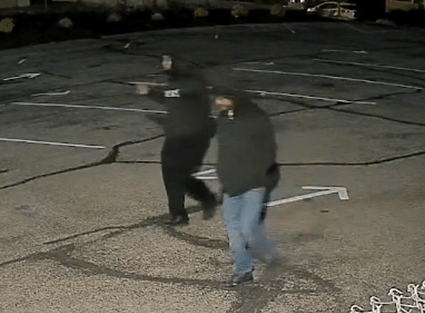
Montgomery County Delegate Chris Hurst was detained — and released — following a traffic stop over the weekend in Montgomery County, one in which police say he blew a breathalyzer reading of .085, which is above the state’s drunk driving limit of .08. Christiansburg Police say the officer released Hurst because of his overall performance during field sobriety tests, because he had a sober companion in the vehicle who could drive and because according to Virginia’s Constitution, legislators in active session can’t be arrested for anything short of treason a felony or breach of the peace.
HURST STATEMENT: “I am very sorry this happened and take full responsibility for exercising such poor judgment. This mistake is not something I take lightly. The work before us in the General Assembly this session is more important than ever before. I look forward to continued efforts to build a better 12th District and Commonwealth of Virginia.”
CHRISTIANSBURG POLICE NEWS RELEASE: On Sunday, Jan. 26, at approximately 2 a.m., an officer with the Christiansburg Police Department initiated a traffic stop on the U.S. 460 Bypass, between the downtown Christiansburg and Peppers Ferry Road exits. The officer pulled over a vehicle, which was traveling west toward Blacksburg, after he observed the vehicle swerve across the right side fog-line several times. The vehicle was also observed to be traveling over the posted speed limit for a brief period of time.
When the officer approached the driver, he noticed that the driver’s eyes were red and he smelled the odor of alcohol coming from within the vehicle. The office obtained the driver’s operator’s license and conducted a routine check of the license status. He then explained his observations to the driver and asked him to follow his pen with his eyes. After noticing a lack of smooth pursuit, he then asked the driver, Chris Hurst, to step out of the vehicle and perform field sobriety tests. The officer administered field sobriety tests and a preliminary field breath test, which is a portable breath test used in the field to assist the officer in determining if a person is impaired. The results of a preliminary breath test conducted in the field are used as an investigative tool, but are not admissible as evidence in court. Hurst complied with the officer’s request and performed all the tests.
Hurst’s preliminary breath test registered a blood alcohol concentration (BAC) of .085. The officer determined that by the time Hurst was brought into the magistrate’s office for a formal breathalyzer test – which is the only admissible test in court – Hurst would be under the legal limit. Because of this, along with Hurst’s overall performance during the field sobriety tests and coupled with the fact that Hurst had a sober companion in the vehicle who could drive him home, the officer released Hurst without charging him. The officer was aware that Hurst is a delegate, but neither the officer nor Hurst mentioned this fact at any time during the encounter.
Additionally, according to Section IV, Article 9 of the Constitution of Virginia, unless they have committed treason, a felony, or a breach of peace, legislators are immune from arrest while the General Assembly is in session. Neither the officer nor Hurst mentioned this law, but the officer was aware of the law’s existence, because it’s taught during the police academy. This provision of the State Constitution makes it highly unlikely that Hurst could have prosecuted in court even if he had been arrested. The officer weighed all of the factors and made a judgement call, as is done each and every time an officer decides whether or not to make an arrest. The officer, Lt. Stephen Swecker, is highly experienced in DUI detection and enforcement. He has been recognized and awarded by Mothers Against Drunk Driving on at least four occasions for his performance in this area.



